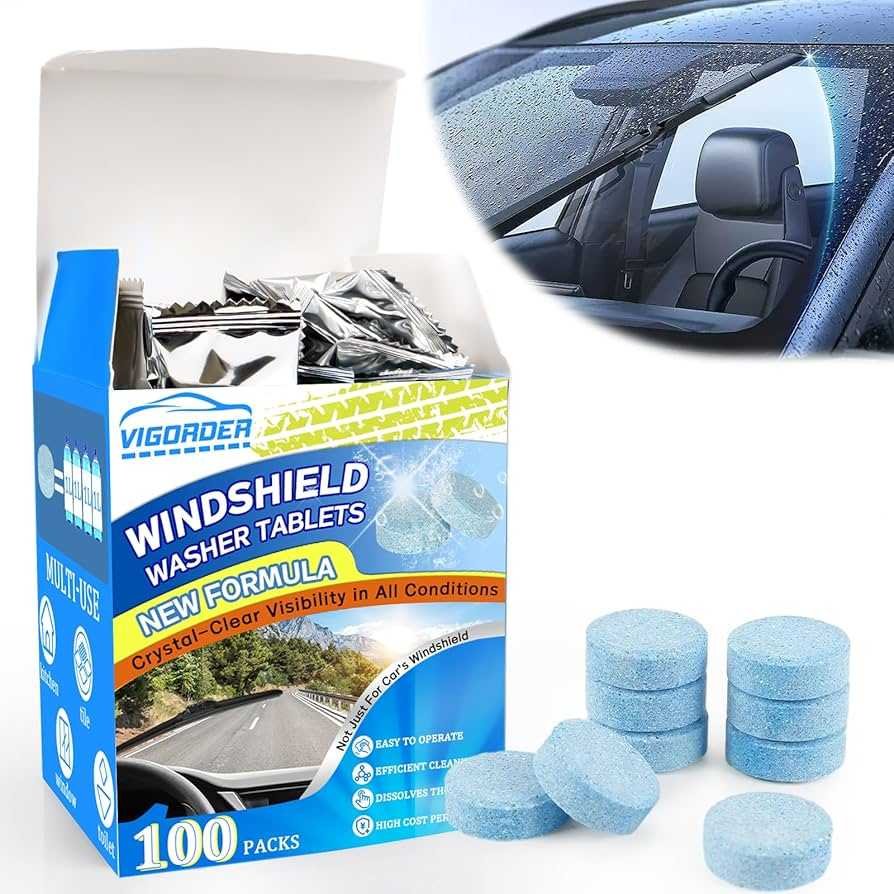Avoid harsh chemicals like ammonia or bleach when cleaning your car windows—they can damage the glass and leaving streaks. Instead, stick to gentle cleaners designed specifically for automotive glass to keep your windows clear and scratch-free.
In short, steer clear of household cleaning products such as ammonia-based cleaners, bleach, or abrasive scrubbers when washing your car windows. These substances can cause etching, streaking, or even harm the protective coatings on your glass. Instead, use a soft cloth or microfiber towel with a mild, automotive-specific glass cleaner to achieve a spotless finish without risking damage. Properly choosing the right cleaning agents helps maintain visibility and extends the life of your car’s windows, ensuring they stay crystal clear in all weather conditions.
When it comes to cleaning your car windows, many car owners make the mistake of using household cleaners not meant for automotive glass. These products often contain aggressive chemicals like ammonia or bleach, which can degrade the glass surface over time or leave behind unwanted streaks. Using abrasive tools or scrubbing too hard can also scratch the glass, impacting visibility and safety. To keep your car looking its best and ensure maximum clarity, it’s essential to select the right cleaning methods and products. Knowing what not to use is just as important as knowing what to use for a sparkling, streak-free finish that enhances your driving experience.
What should I not use to clean car windows?
Avoiding Harsh Chemicals
Many household cleaning products seem like easy options for cleaning car windows, but they can cause damage. Products containing ammonia, bleach, or other strong chemicals can create streaks or even degrade the glass surface over time. Using the wrong cleaner might also lead to cloudiness or haziness on the glass, reducing visibility and safety while driving.
Why Ammonia-Based Cleaners Are a No-Go
Ammonia-based cleaners are common in many household glass cleaners, but they are not suitable for car windows. They can strip away the protective coatings on your glass. This can make the windows more prone to scratches and reduce their overall clarity. Plus, ammonia can react poorly with tinting films on car windows, causing them to peel or discolor.
Steering Clear of Dish Soap and Household Cleaners
While dish soap is great for washing dishes, it is not ideal for cleaning car windows. Dish soap often leaves a residue that can attract dirt or create streaks. Many household cleaners contain oils or detergents that leave a film on glass, impairing your view. Always opt for products specifically designed for auto glass to avoid these issues.
What to Avoid in Wipes and Cloths
Some wipes and cleaning cloths contain chemicals or abrasive materials that can scratch or damage car windows. Avoid using rough sponges, paper towels, or harsh scrubbers on glass, as these can leave micro-scratches that impair visibility. Instead, choose soft microfiber cloths that are gentle yet effective at cleaning.
Risks of Using Automotive Products Not Designed for Glass
Certain automotive cleaning sprays are formulated for specific surfaces and might contain waxes or other substances unsuitable for glass. Using products not designed for windows can leave a film, making the glass look cloudy or streaky. Always check labels carefully and select products labeled for automotive glass cleaning.
How Inappropriate Cleaning Agents Can Damage Tinted Windows
Many car owners have tinted windows, which require special care. Using inappropriate cleaners—especially ammonia or alcohol-based products—can cause the tint film to bubble, peel, or discolor. To protect your tint, always choose cleaners that are safe for tinted surfaces.
Beware of Using Petroleum-Based Solvents
Petroleum-based solvents, like certain paint thinners or degreasers, should never be used on car windows. These chemicals can strip away tinting films and damage the glass surface. They also pose health risks if inhaled or touched, making them dangerous choices for cleaning car windows.
Risks of Using Engine or Brake Cleaners
Engine degreasers or brake cleaners might seem powerful, but they are not meant for glass surfaces. These chemicals contain harsh solvents that can cause glass to become cloudy or develop spots. Keep these cleaners away from your car windows to prevent damage.
Why Avoid Using Vinyl or Leather Cleaners
Some cleaning products designed for interior car surfaces like vinyl or leather contain oils or chemicals unsuitable for glass. Applying these products to windows can leave a greasy film or streaks. Use only products formulated for auto windows for a clear, streak-free finish.
Potential Hazards of Using Inappropriate Detergents
Using detergents not intended for automotive use can lead to streaks, haziness, or damage. For example, harsh laundry detergents or industrial cleaners can interfere with the clarity of your car’s glass. Always select gentle, automotive-approved cleaners to keep your windows clean without risking damage.
Proper Cleaning Supplies for Car Windows
Instead of using unsafe products, opt for manufacturer-recommended cleaning solutions. Many auto parts stores offer glass cleaners specifically designed for automotive use. These products are formulated to clean effectively while protecting the glass and any tinting films.
Best Practices for Safe and Effective Cleaning
Use soft microfiber cloths to wipe your windows, and spray the cleaner evenly. Avoid excessive pressure, which can cause micro-scratches. Regular cleaning with safe products will help maintain clear, streak-free windows and ensure safe driving conditions.
Summary of Key Points
- Never use ammonia-based or bleach cleaners on car windows.
- Avoid household cleaning products with oils, detergents, or abrasives.
- Steer clear of rough cloths or paper towels that might scratch the glass.
- Skip petroleum solvents, engine degreasers, and brake cleaners.
- Use automotive-specific glass cleaners for optimal results.
Additional Tips for Protecting Car Windows
Regularly cleaning with the right products prevents buildup and streaks. Parking in shaded areas while cleaning reduces water spots and streaks caused by rapid evaporation. Also, always dry the glass with a clean microfiber cloth to avoid leftover moisture or smudges.
Related Topics to Consider
Learn about the best methods for applying window tint, techniques for removing stubborn stains, and how to prevent frost or ice buildup on your windshield. Proper maintenance not only improves appearance but also enhances safety on the road.
Final Advice
Using the right cleaning products and techniques helps preserve the clarity and integrity of your car windows. Avoiding harsh or inappropriate chemicals is essential for maintaining optimal visibility and ensuring the longevity of your vehicle’s glass and tint.
How to Clean Car Windows Without Streaks (GUARANTEED!!!)
Frequently Asked Questions
What cleaning products should I avoid when cleaning car windows?
Avoid using products like bleach, ammonia-based cleaners, or window cleaners that contain harsh chemicals not designed for automotive glass. These substances can damage the glass or leave residues that impair visibility. Stick to cleaners specifically formulated for automotive windows or mild soap and water.
Why is it not recommended to use household all-purpose cleaners on car windows?
Household all-purpose cleaners often contain chemicals that can streak or leave a residue on automotive glass, reducing visibility and causing haziness. They may also contain abrasives that scratch the surface of the glass. Use cleaners intended for vehicle windows to ensure a safe and clear finish.
Can I use abrasive scrubbers or steel wool on car windows?
Using abrasive scrubbers or steel wool can scratch and permanently damage the glass surface. Such abrasives remove the protective coating and leave behind marks that are difficult to eliminate. Always choose soft cloths or microfiber towels to clean your car windows gently.
Is it safe to use alcohol-based or acetone products for cleaning car windows?
No, alcohol-based or acetone products can strip away any protective coatings on the glass and may cause hazing or streaks. They can also evaporate quickly, leaving spots that impair visibility. Opt for cleaning solutions specifically made for auto glass to avoid damage.
Should I use car wax or polish directly on the windows?
Applying wax or polish directly to windows can cause smudges or streaks that are difficult to remove. These products are designed for paint surfaces, not glass. Use a dedicated glass cleaner instead to keep your windows clear and streak-free.
Final Thoughts
When cleaning car windows, avoid using household cleaners like bleach or ammonia. These substances can damage the glass and create streaks that impair visibility.
Avoid rough materials such as steel wool or abrasive sponges, which can scratch the surface and cause permanent damage.
Additionally, steer clear of using harsh chemicals like oven cleaners or drain cleaners, as they can corrode the glass and damage window seals.
What should I not use to clean car windows? Stick to proper cleaning solutions designed for automotive glass to keep your windows clear and intact.
- How To Fix Laminated Windshield Chip Effectively - October 29, 2025
- How To Repair Laminated Glass Crack Effectively - October 29, 2025
- How To Clean Laminated Glass Properly For Sparkling Results - October 29, 2025



